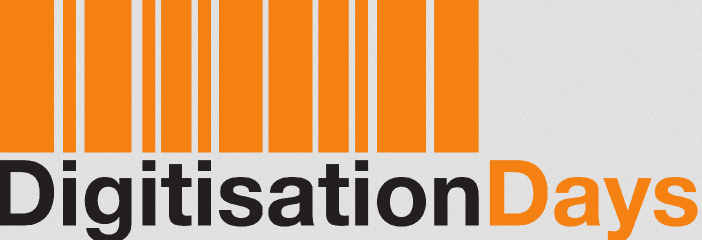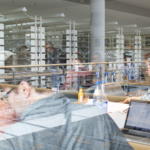
http://ddays.digitisation.eu/
The Digitisation Days aim to present an up-to-date vision of the most recent advances in technology for the digitisation of text, to showcase successful experiences in their application and to explore the challenges for the near future of digitisation. It comprises the DATeCH International Conference that is conceived as forum to present, discuss and showcase latest techniques in digitisation and related fields.
The Digitisation Days and the DATeCH International Conference are supported by the Impact Centre of Competence and organised by the Göttingen State and University Library and the University of Göttingen.
Where and when will they take place?
The Digitisation Days will take place in Göttingen at the facilities of the Niedersächsische Staats- und Universitätsbibliothek Göttingen, Historical Building (Papendiek 14, 37073 Göttingen) on 1-2 June 2017.
Why should I attend the Digitisation Days?
- Become aware of new technology for the digitisation of textual content.
- Influence future trends in digitisation: meet researchers, leading companies, and service providers and discuss your requirements.
- Participate in the discussions about the future of digitisation. Experts and representatives of the European Commission will share their vision.
- Network and build new connections with representatives of libraries, companies and institutions involved in digitisation.
See the list of accepted papers at http://ddays.digitisation.eu/datech-2017/accepted-papers/
Satellite workshops
On May 30th – 31st, the following workshops will take place. The registration for these workshops is independent of the conference registration.
- The journey from physical to digital and advancements in culture heritage digitisation, May 30th, 2017, 9 :00AM – 4:30 PM: This two-part workshop will introduce the basics of the digitisation lifecycle with emphasis on workflows and best practice, and facilitate a discussion about optimisation of the end-to-end digitisation process to increase scalability and improve the quality and usability of the digitised assets.
- TRACER tutorial for computational text reuse detection, 30th May 2017, 9 AM – 6 PM: The tutorial builds on eTRAP’s research activities, most of which deploy our TRACER machine. TRACER is a suite of algorithms aimed at investigating text reuse in different corpora, be those prose, poetry, in Italian, Latin, Ancient Greek or medieval German. TRACER provides researchers with statistical information about the texts under investigation and its integrated reuse visualiser, TRAViz, displays the reuses in a more readable format for further study.
- TextGrid user workshop, May 30th 2017 1PM – 5 PM: TextGrid is a virtual research environment that provides various tools and services for digital humanists. The workshop will initiate the participants in the use of the TextGridLab, a free portable software, and the basic components of its infrastructure.
- Handwritten Text Recognition – Transkribus Workshop (project READ), May 31st, 2017, 9:00 AM – 5 PM: Transkribus (https://transkribus.eu/Transkribus/) is a platform for the automated recognition, transcription and searching of handwritten historical documents. Transkribus is part of the EU-funded Recognition and Enrichment of Archival Documents (READ) (http://read.transkribus.eu/) project. The core mission of the READ project is to make archival material more accessible through the development and dissemination of Handwritten Text Recognition (HTR) and other cutting-edge technologies.
- PoCoTo user workshop, May 31, 2017 1 PM – 5 PM: PoCoTo (PostCorrectionTool) is an open source tool for the interactive post-correction of OCR‘ed data that has be developed by the CIS of the LMU Munich. This workshop will teach the participants both the basic usage of PoCoTo for the correction of OCR results and more advanced topics like the usage of the language profiler for the generation of correction suggestions that take historical spelling variation of the document language into account.
How can I register?
Please, visit http://ddays.digitisation.eu/registration/



 This project has received funding from the European Union’s Horizon 2020 Research and Innovation programme under Grant Agreement No. 675570.
This project has received funding from the European Union’s Horizon 2020 Research and Innovation programme under Grant Agreement No. 675570.
 project.
project.